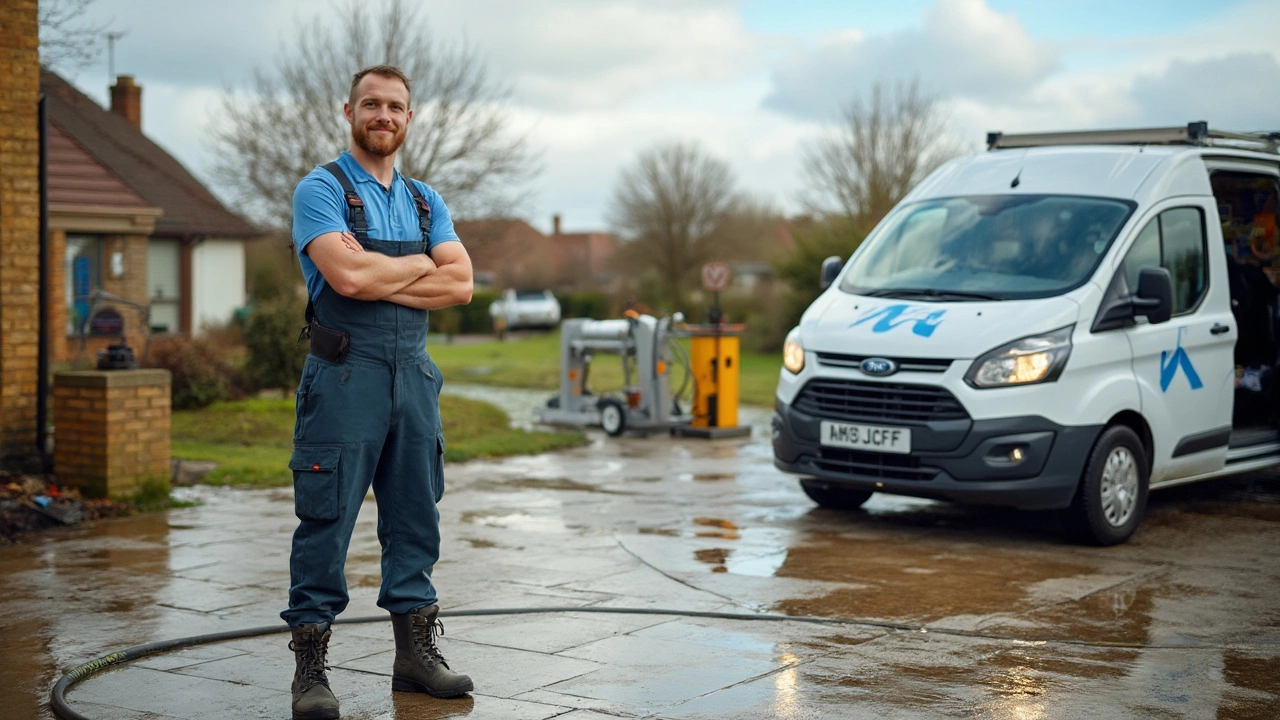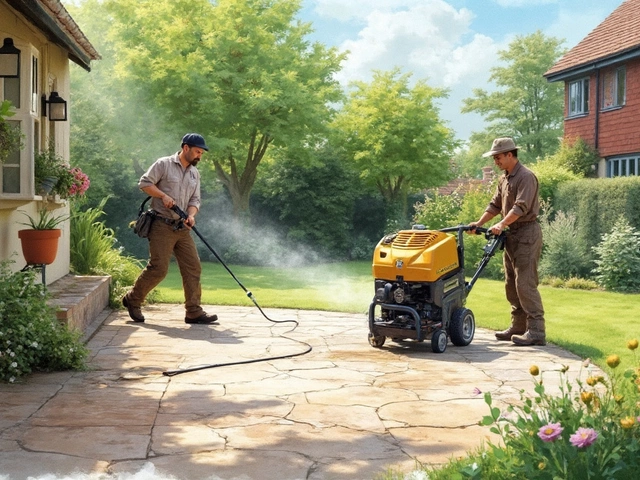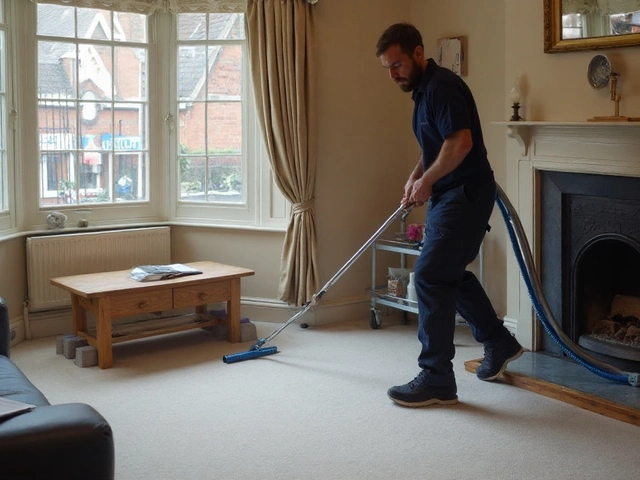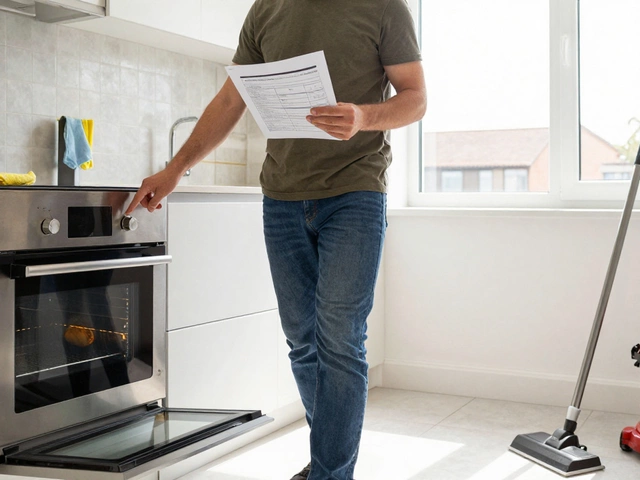Pressure washing sounds simple, but does it actually pay off? The truth is, you don’t need a huge investment to get started, and jobs can start raking in cash fast. Homeowners and businesses are willing to pay good money just to see dirty surfaces transformed. Average residential jobs pull in anywhere from $200 to $600, and that’s often just for a couple of hours’ work. Commercial gigs can pay even more, sometimes adding a zero to your daily haul.
Even better, most people won’t try to pressure wash big jobs themselves—nobody wants to spend their weekend wrangling heavy equipment or risk blasting off their own paint. So, the demand stays strong. Plus, this isn’t just a summer thing—you’ll find work nearly year-round, from cleaning decks in spring to prepping storefronts before the holidays. All you need to get going is a reliable pressure washer, basic cleaning solutions, and a willingness to hustle. It’s one of those rare businesses where word-of-mouth really works in your favor once people see the results.
- Breaking Down Power Washing Income
- Tools, Costs, and Getting Started
- Typical Clients and Most Lucrative Jobs
- How to Boost Your Profits
- Roadblocks and How to Dodge Them
- Power Washing: Real-Life Success Stories
Breaking Down Power Washing Income
If you’re eyeing pressure washing as a way to make cash, it’s smart to know what folks are really bringing in. In 2024, HomeAdvisor reported that the average cost for a professional house wash in the U.S. falls between $250 and $500 per job. That means even solo operators clear $1,000 to $2,000 a week just by booking one or two jobs daily, several days a week. If you break into commercial work, those numbers can double fast—schools, gas stations, and shopping centers pay more for larger spaces and tougher stains.
Most entry-level pros start small—think driveways, fences, and siding, which usually take about 2-3 hours per job. A job like that can easily net you $300 on average. Bigger jobs like commercial parking lots, multi-unit condos, or annual contracts for property managers can hit $1,000 or more for a single day’s work.
To put it simply, power washing is one of the rare service gigs where your time directly equals cash. There’s a reason the U.S. Bureau of Labor Statistics groups pressure washers under “Building Cleaning Workers”—their median pay is about $39,000 a year, but small business owners often report much more. One owner told PowerWash.com:
“In my first year after going full-time, I cleared $70k just sticking to residential driveways and decks—no fancy contracts, just good service and quick turnarounds.”
Remember, this is before accounting for expenses, but most pressure washing jobs keep overhead surprisingly low. You control your schedule, your rates, and which jobs you take. You can even mix in upsells—like sealing driveways or cleaning gutters—to make each trip more profitable. When you’re smart about it, pressure washing can be more than just a side hustle; it can become your full-time gig that actually pays the bills.
Tools, Costs, and Getting Started
If you’re thinking about jumping into the power washing business, you don’t need to go broke to get rolling. Most newbies kick things off with a solid pressure washer (gas is usually better for heavy work), a few specialty nozzles, long hoses, and basic safety gear so you don’t end up soaked or bruised. Skimp on the cheap stuff and you’ll just be replacing it sooner than you want.
Here's a quick breakdown of what your shopping list – and budget – might look like if you’re aiming to do it right from day one:
| Item | Estimated Cost (USD) |
|---|---|
| Commercial Pressure Washer | $900 - $2,000 |
| Surface Cleaner Attachment | $150 - $400 |
| High-Pressure Hoses and Nozzles | $100 - $300 |
| Basic Chemicals/Cleaners | $100 - $250 |
| Safety Goggles & Gloves | $30 - $70 |
| Marketing Materials (Website, Flyers, etc.) | $100 - $500 |
| Business Insurance | $400 - $1,000/year |
Most folks can get started for $2,000 to $4,000 all-in, especially if they shop smart or buy some gear used. Don’t try to wing it without insurance, either—one cracked window or paint job mistake and you’ll wish you had it.
Here’s what a basic launch could look like:
- Pick up your gear (don’t forget a decent hose reel; it saves your back on big jobs).
- Register your business and slap together a simple website—your phone number and before/after pics do most of the talking.
- Get insured. Seriously. Some neighborhoods or commercial clients won’t even talk to you without it.
- Start knocking on doors or dropping flyers. A fast way to drum up business is to post on local Facebook groups with real job photos (not Google stock pics).
Jobs roll in faster once people see your work. Be prepared for a bunch of questions about chemicals, safety, and whether you’ll ruin their siding—being honest and clear wins trust. Soon you’ll find most of your customers come from neighbors watching you clean the house next door. Simple start, but if you do it right, it pays off fast.
Typical Clients and Most Lucrative Jobs
When you get into power washing, your main clients usually fall into a few easy buckets. First up, you’ve got homeowners. These folks call when their driveways turn dark, decks get slippery, or the HOA starts complaining about grime on siding. Most are after a quick refresh of the places that make the house look worse from the curb—driveways, patios, fences, or roofs. On average, a single residential job will run between $200 and $500.
But don’t sleep on businesses—small stores, restaurants, and even gas stations. These clients pay more because they need to keep their storefronts clean to attract customers. Commercial jobs are usually bigger, and you can bill by the square foot or by the hour. If you land a shopping center or apartment complex, you’re talking bulk work, which is way more profitable and steady. Some power washers claim commercial gigs can bring in $1,000 to $2,000 per job, depending on the size and location.
Here’s a quick breakdown of what certain jobs can pay you on average:
| Type of Job | Average Pay Per Job |
|---|---|
| Residential driveways | $200-$300 |
| Decks & patios | $150-$400 |
| Home siding (full house) | $300-$600 |
| Commercial sidewalks/storefronts | $400-$1,000 |
| Apartment complexes | $1,500-$4,000 |
Some easy wins are gutter cleaning, graffiti removal, or prepping surfaces before painting. These jobs usually pay extra because they need a little more care or attention. Another solid trick: bundle services. Offer a whole-house package that covers siding, driveway, and deck for a flat rate—customers love simple options and you boost your earnings per visit.
So, if you want to maximize profit, target commercial jobs or high-traffic residential areas where dirt shows up faster. Network with property managers and local business owners—they hand out repeat work, and their jobs are often bigger, bringing more cash in less time.
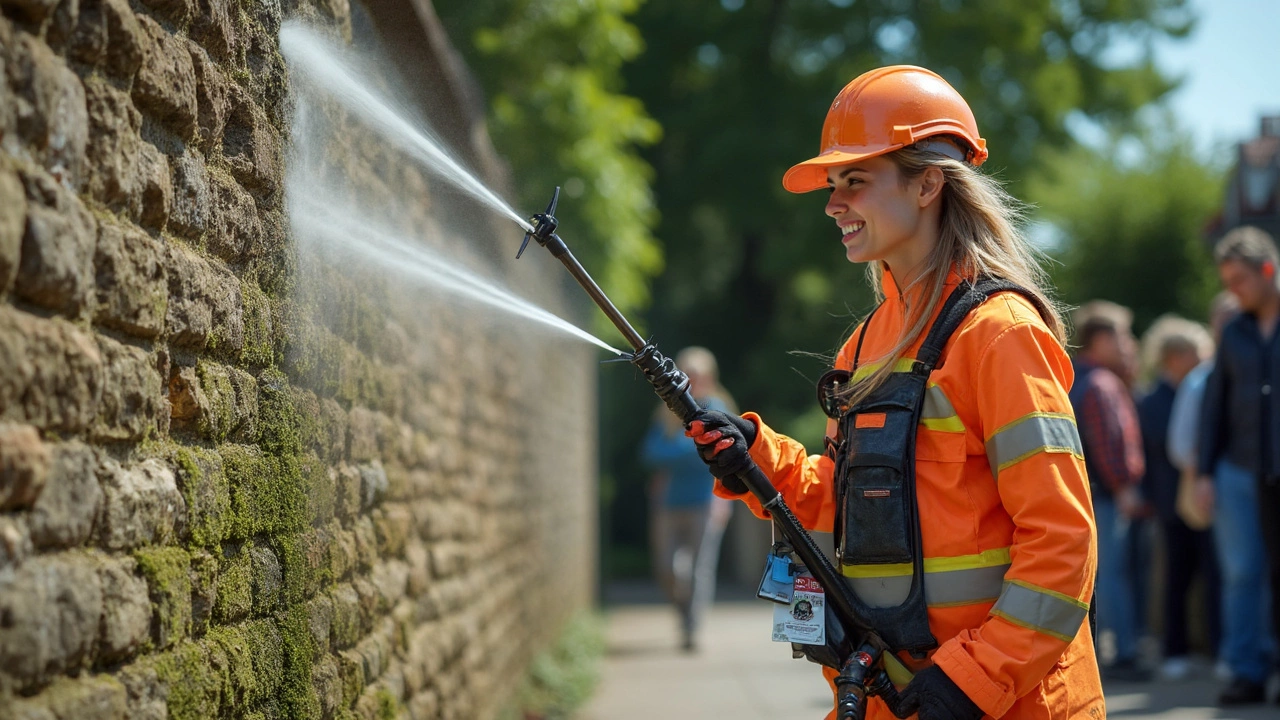
How to Boost Your Profits
If you want to see real gains in your power washing business, focusing on efficiency and smart strategy matters more than working extra-long hours. The fastest way to bigger profits is by squeezing more jobs into your week, charging fair rates, and not leaving money on the table with every customer.
Here’s what separates guys who just get by from those who actually bring in serious cash:
- Offer Packages: Don’t just sell a basic wash. Bundle in extras like driveway cleaning, patio washing, gutter cleaning, or fence restoration. Packages can easily increase your ticket size by 30%-50% with the same customer.
- Follow the Seasons: Spring and summer are hot, but don’t ignore fall gutter cleaning or even graffiti removal in the winter. Year-round marketing brings steady work.
- Market Where Your Customers Hang Out: Local Facebook groups, neighborhood apps, and simple yard signs bring you directly to people who are ready to buy. Respond fast and always ask for reviews after jobs—they build trust for new leads.
- Invest in Better Equipment Over Time: Faster, more powerful washers and quick-connect hoses mean you finish each job faster, so you can fit more into your week. A trailer setup lets you handle jobs that take more water, too.
- Commercial Contracts: Reach out to small businesses, property managers, and HOAs—these clients typically need repeat jobs and pay premium rates.
Check out this real-world breakdown so you can see where profits can land if you dial in on these approaches:
| Job Type | Average Time (hours) | Avg. Price Per Job ($) | Potential Jobs/Day | Potential Daily Revenue ($) |
|---|---|---|---|---|
| Basic Driveway | 1.0 | 250 | 3 | 750 |
| Whole House Wash | 2.0 | 400 | 2 | 800 |
| Commercial Storefront | 2.5 | 600 | 2 | 1,200 |
| Package Deal (House + Driveway + Patio) | 3.0 | 650 | 2 | 1,300 |
Don’t forget upsells—they’re what really take your profit per customer to the next level. When you finish a driveway and see the customer’s dirty deck or faded fence, pitch them a quick add-on at a fair price. It’s easier to get one customer to say “yes” a second time than to go chasing a brand new one.
Last thing: track your expenses. Keep tabs on gas, chemicals, and repairs, so you know your true profit, not just gross revenue. If you keep improving your speed, pitch every client, and watch your numbers like a hawk, it’s not hard to turn power washing into a five-figure monthly income.
Roadblocks and How to Dodge Them
Anyone thinking about jumping into the power washing game should know it’s not always a smooth ride. There are a few common hiccups you’ll run into, but most of them are avoidable if you know what you’re doing. Let’s break down the big ones and how to get around them.
- Equipment Problems: Cheap pressure washers burn out fast and can leave you hanging on the job. Go for a solid, commercial-grade machine—yes, it’s more upfront, but it saves headaches down the road. Always have a maintenance plan. Keeping a backup hose or nozzle in your truck isn’t overkill, it’s just smart.
- Low-Balling Competition: Everyone’s got that friend-of-a-friend with a $99 special. Don’t sweat it too much. Instead, show your work, post before-and-after shots, and remind customers why cheap doesn’t mean better. Build trust and loyalty, and people will pay your rate.
- Seasonal Slowdowns: Even in warm states, winter can drag things out. That doesn’t mean zero work—think ahead. Land recurring clients or offer gutter cleaning, holiday lighting, or ice removal in the off months to keep the cash flowing.
- Regulations and Insurance: Some cities want proof you’re legit. Stay legal with insurance, licensing, and all the right permits. It’s not just for looks—it keeps you covered if anything goes sideways.
- Getting Paid: Believe it or not, chasing payments eats up more time than scrubbing driveways. Use apps for quick invoicing, and if a customer hesitates, ask for a deposit up front, especially on big jobs.
Here’s a quick look at the top issues and how many pros say they’ve tripped over them in their first two years, according to surveys from the Pressure Washing Resource Association:
| Roadblock | % of New Operators Affected | Pro Solution |
|---|---|---|
| Equipment failure | 54% | Buy quality gear, set maintenance schedule |
| Low-price competitors | 47% | Focus on value, share proof of results |
| Slow season dips | 39% | Diversify services, push seasonal specials |
| Permit/license issues | 21% | Research local rules, stay up to date |
| Collections/non-payment | 28% | Request deposits, use invoice tools |
If you want to avoid major headaches, cover your bases from the jump. Invest in gear that lasts, don’t race to the bottom on price, and always keep the business legal. The power washing world pays off best when you plan ahead and keep an eye on the details that matter.
Power Washing: Real-Life Success Stories
If you’re still on the fence about jumping into the power washing game, check out what’s actually happening out there. People from all walks of life are cashing in, some starting with nothing but a small loan or even a used washer bought off Facebook Marketplace.
Take Mike, for example. He kicked off his pressure washing side hustle in Atlanta in 2021, booking simple driveway cleanings through local Facebook groups. By his second summer, he was pulling in over $4,000 a month, working mostly weekends. He says repeat business and neighbor referrals made up almost half his gigs.
Then there’s Jen, a mom from Texas who turned power washing into a full-time thing after getting laid off. She landed a contract with a local fast-food chain to clean outdoor seating areas twice a month. That single contract jumped her earnings to almost $40,000 in her first year. Jen said her best tip was to always snap before-and-after photos and show them off on her business page—they bring in the skeptical clients.
This money isn’t just hype. A recent industry report showed that the average small pressure washing business in the U.S. can clear $60,000–$120,000 in annual revenue if they keep hustling and manage their bookings well. Bigger crews and those who take on commercial jobs pull even higher numbers.
| Type of Client | Average Job Price | Typical Earnings/Month |
|---|---|---|
| Residential (Driveway/Siding) | $250–$600 | $3,000–$8,000 |
| Commercial (Restaurants/Retail) | $800–$2,000+ | $8,000–$15,000+ |
Want the best shot at success? Here’s what the top earners in power washing recommend:
- Take the time to learn about different surfaces—using the wrong nozzle can cost you more than you’ll make fixing a mistake.
- Network locally—team up with landscapers, realtors, or painters who can send referrals your way.
- Don’t cheap out on your equipment; reliability means more jobs done and fewer lost days.
The bottom line: These stories aren’t just rare outliers. With a solid work ethic and a little marketing, people are turning pressure washing into a real paycheck.
